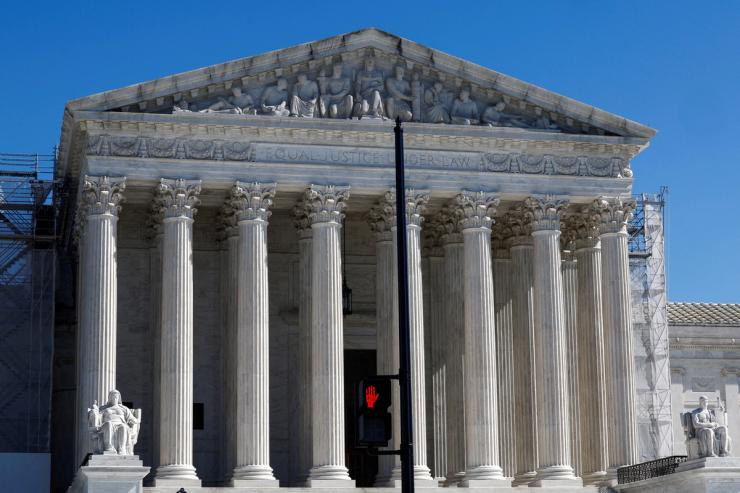The News
U.S. Supreme Court justices appeared unconvinced by Republican-led claims that the Biden administration engaged in coercion when it pushed social media platforms to suppress inaccurate or false information during the pandemic.
In oral arguments in the Supreme Court’s Murthy v. Missouri case on Monday, the Court’s conservative and liberal justices appeared to agree that communications between the White House and social media companies seemed appropriate.
The Court’s ruling could have a drastic impact on how the government balances free speech in the country, and activists warned that if the justices agree with the plaintiffs’ argument that the administration’s contact with social media companies should be limited, it could lower the bar for the government’s interactions with private entities.
SIGNALS
Justices seem skeptical about government ‘jawboning’
The Supreme Court justices appeared unpersuaded by the plaintiffs’ arguments that the government’s communication with social media platforms was akin to “jawboning” — in which the government leans on private parties to do what it wants. The justices questioned the lack of evidence to support claims that the Biden administration threatened punitive action against platforms that failed to take down content, NBC News reported. The justices also agreed that there are certain instances when the government has a responsibility to intervene in regulating social media content, with Justice Ketanji Brown Jackson questioning whether the plaintiffs would oppose a hypothetical scenario in which the government asked companies to take down a social media challenge encouraging teenagers to jump off bridges.
Misleading evidence in plaintiffs’ case supports ‘culture war conspiracy theory’
The plaintiffs’ case is supported by misleading or inaccurate evidence that appears to prop up more of “culture war conspiracy than… a credible factual record,” New York University Law School’s Just Security forum argued. The plaintiffs, for example, claimed that Dr. Anthony Fauci was planning to “take down” certain misleading speech during the pandemic, but emails show he wanted to debunk those posts with accurate medical information. Plaintiffs have argued that the FBI wanted to take down over 900,000 posts made by American citizens on X, but documents show that the posts were actually from Russian entities. It should be of “grave concern” that some justices are poised to rule in a case based on “flawed information,” Just Security wrote.
India’s clampdown on social media firms is setting norms in other countries
In India, Prime Minister Narendra Modi’s government has dramatically tightened its grip on Silicon Valley’s social media companies, strengthening national laws to prosecute social media employees who refuse to cooperate with the government when Delhi asks platforms to remove posts — for example, that are critical of Modi or his Hindu-nationalist policies. The government’s prioritization of what it claims are national security concerns has inspired other countries including Nigeria and Myanmar to craft similar legal frameworks, often using near-identical language in their bills. “India is steadily becoming a norm-shaping country,” a researcher at the Internet Society, a Virginia-based global internet advocacy organization, told The Washington Post. Companies such as X — led by Elon Musk — have acquiesced to local regulations despite numerous attempts to sue the government over free speech infringements.



